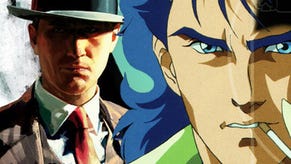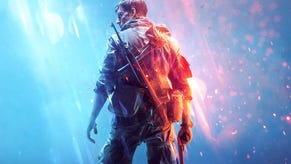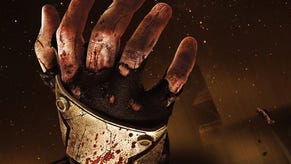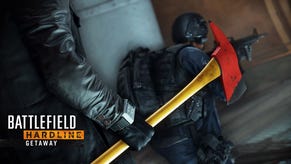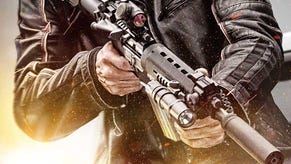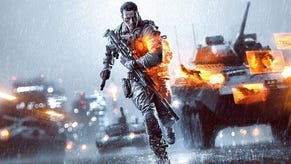Life Imitates Art: Battlefield Hardline and How the Media Handles Police
Our media sends a few messages about law enforcement and some of those messages bleed into the real world.
This article first appeared on USgamer, a partner publication of VG247. Some content, such as this article, has been migrated to VG247 for posterity after USgamer's closure - but it has not been edited or further vetted by the VG247 team.
On Saturday in Ferguson, Missouri, a young African-American man named Michael Brown was killed by a police officer. He died in the middle of the street, mere days before he was to start classes at a technical college. It's a tragedy, but it won't be the last. Brown's death follows the similar deaths of other men of color: Eric Garner in New York, John Crawford in Ohio, Jesus Huerta in New York, and Jonathan Ferrell in North Carolina. It's a situation that should be more surprising, but isn't for certain classes of people.
The community of Ferguson took to the streets to protest the death and subsequent handling of the case. The police eventually cracked down on the city, using tear gas, rubber bullets, and military grade equipment to disperse the protestors. The pictures of the St. Louis Police Department in Ferguson have been compared to military occupations in other countries, but it's just a larger manifestation of something that's been going on for far longer.
Even journalists and elected officials weren't free from the crackdown. Two journalists and an alderman were arrested for recording the actions of the police, with other journalists reporting being shot at with tear gas and rubber bullets. It's as bad as it can get without descending into complete all-out war between the police and the people they are supposed to serve. Today, things took a turn for the better, but this shouldn't have happened in the first place.
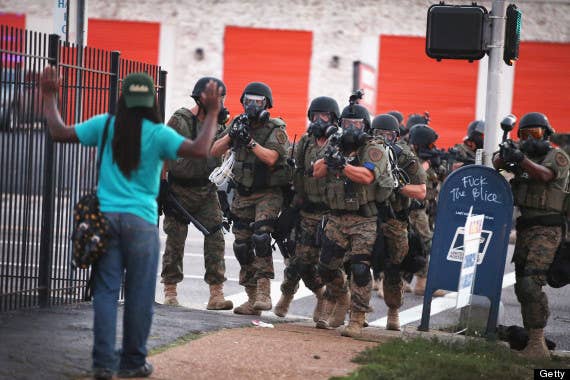
The protests in Ferguson are happening because that is the only recourse those citizens believe they have. They believe there is no justice. They believe that Mike Brown's murder will go unpunished, as many of the murders listed above are currently unpunished. They believe that there is overwhelming societal and institutional favor with the officers who did the killing. The assumption is that they are correct, that lethal force was used because the victim had done something wrong.
Which brings us to Battlefield: Hardline, the newest entry in EA's Battlefield series, but with a focus on law enforcement within the United States. Perhaps EA shouldn't be showing the game at Gamescom 2014 this week in light of recent events, but hundreds of lives depend on the game's success. Battlefield: Hardline plays on the growing militarization of the police, showing scenes of all-out war between heavily-armed police and criminals. It's a war game in a different skin, something that should probably disturb us more than it does. In light of the imagery coming out of Ferguson, it's not out of the question that some players may be disturbed by what Hardline represents.
Hardline is not a game I was planning to play, even prior to Ferguson. The subject matter is simply uncomfortable for me, so I'd already decided to avoid it. I have a different relationship with the police than some of Hardline's target demographic. I don't trust them. That's not to say that there aren't good cops; I've met many kind and personable law enforcement officers. Many are good people trying to do a good job, one I would never do myself.
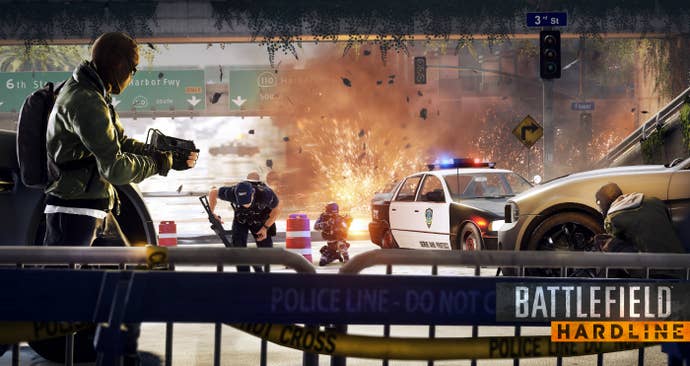
But when I'm around law enforcement I'm always on edge, always more conciliatory, and always doing my best to give them a wide berth. I've been stopped in an affluent neighborhood while driving home. When I told some friends about it, they asked why I didn't get angry. I replied that it's because I was trying to stay out of trouble; I was trying to stay out of a situation that would put my word against that of a police officer. Or worse.
Running into a police officer with the wrong priorities has so many heavy consequences. Fines, arrest, assault, or even death. And frequently, at least for many minorities in the United States, there's no justice or restitution for running into a bad cop. No jail time or firings for those who do their jobs poorly and ruin lives. Ferguson illustrates this, as the arrested journalists can't even get solid information from law enforcement about the officers who arrested them. One wasn't even read his Miranda Rights. And that's the media, who are recording and releasing this information. What do police officers do to those without such voices?
The stories lean on the side of law enforcement, and that's reflected in our media. Battlefield: Hardline isn't a sore touch point, it's a continuation in a long line entertainment that portrays our law enforcement as always right. It follows Law & Order, 24, The Blacklist, Bad Boys, Lethal Weapon, and a host of other films and shows where the police have to circumvent the laws to "do what's right." Where the person they suspect is always the correct criminal. Where the ends (putting the bad guy away) justify the means (breaking and subverting laws).
While there are many entertainment media examples of police being portrayed both as good guys and bad guys, the trope of law circumvention to "do what's right" is a common factor, whichever point of view is being articulated. Our entertainment does this because that's what we want. Good and evil, black vs. white. The evil conspiracy always goes to the top. The application of sufficient willpower and force will always win the day. The simple morality makes us feel good—despite the majority of people not condoning vigilantism or the concept of a militarized police whose end justifies the means. Sometimes we just want to see someone be the badass or beat the badass. Especially in our industry, it's rare to have a game that portrays these situations in a nuanced light, like Papers, Please or Spec Ops: The Line.
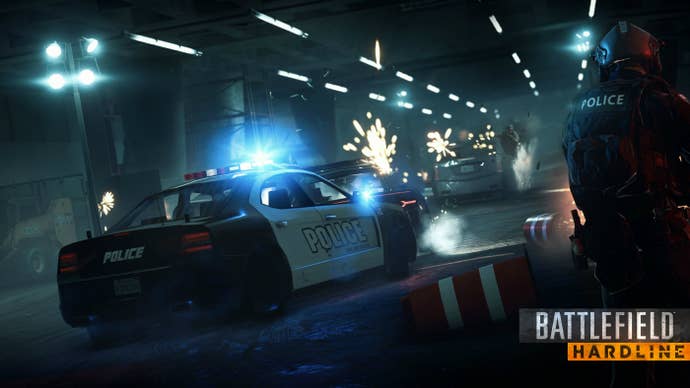
Oscar Wilde wrote that, "life imitates art far more than art imitates life" and it's true. There's a bleed-in between the entertainment we consume and the real world. Our entertainment normalizes certain things, things that frequently aren't true. It says that law enforcement is always correct, which isn't true because they're only human. (In 2011, 9 out of 10 stops by law enforcement in New York didn't lead to any arrest.) Our entertainment reinforces beliefs founded in racial or sexual biases; that's why so many hammer on representation in games, comics, movies, and television. That's why it's important to watch how a game tells its story or what's being presented. That's why we should question our entertainment instead of just disgesting it whole without any thought.
I enjoy many of the shows and movies I mentioned before. It's fine to enjoy entertainment with problematic issues; trust me, not everything you love is without issue. Battlefield: Hardline is just too close for me. That's not something I want to control directly. I don't need to kill or arrest suspects without being cognizant of their rights. I don't need to enforce that kind of order. I need that layer of unreality and at least from what I've seen so far, Hardline doesn't really have it.
It's just feels too close to the experiences minorities have with law enforcement, as I'm sure previous Call of Duty or Battlefield titles may have been for players in other regions. I don't need the game boycotted, it's just something I'll comment on and avoid. If I do play it, it'll be through this lens as a way to have a further discussion on this topic. I don't fault the hundreds of people at EA or Visceral working on the game, I merely want them and players to think about what's being created and how life might imitate that art.


